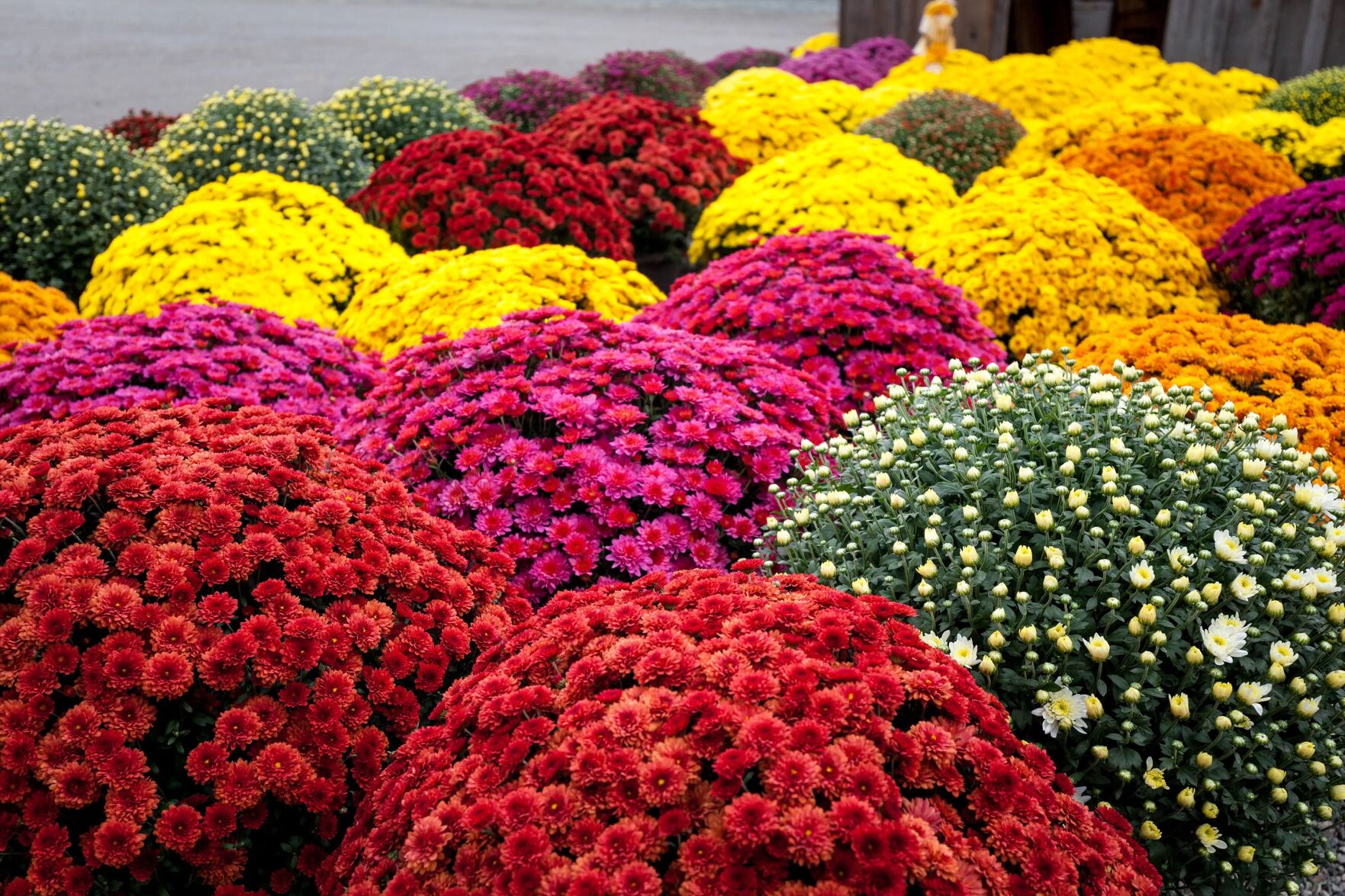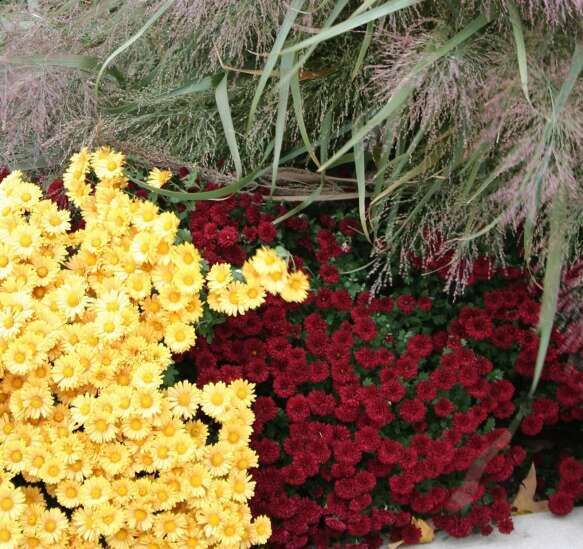Add a burst of fresh color to the fall landscape with mums. This traditional fall flower is a favorite of many. These fall beauties come in a wide range of colors and provide weeks of floral beauty. Mums are great in containers, the garden and cut flower bouquets. Fall just wouldn’t be the same without them.
When shopping for mums, you might see them labeled as garden, perennial, gift or florist mums. All these different names for plants that basically look alike can be confusing. The answer lies in their response to day length, hardiness and use.
Those grown as gift and holiday plants often are called florist mums. These usually require the longest periods of uninterrupted darkness or shorter days. When these mums are grown under natural daylight, they usually don’t flower until late fall or early winter. These late bloomers usually are killed by low temperatures before or soon after the flowers appear in colder parts of the country.
Nurseries selling mums in full bloom in the fall often refer to them as garden mums. These might be perennial or “florist” mums forced to flower for fall displays. The intent is to use them as annuals. Set a pot on the steps, pop a plant in a vacant spot in the garden or combine them with other fall favorites.
Even if these garden mums are hardy and suited to your growing conditions, they might not survive the winter. Since all the energy of flowering fall-planted mums is directed to the flowers, little is left to establish a hardy robust root system.
If you have success overwintering your garden mum, feel free to brag. If your plants don’t survive or you don’t try, don’t worry. You are using them as a fall annual as they were intended. This provides space for new plants in the spring and an opportunity to try a different color of mum next fall.
Those mums sold as perennials are hardy enough to survive the winter and flower in late summer or early fall, providing weeks of color in the garden. They often are sold alongside other perennials, labeled as perennials, or promoted as hardy for the area. Increase your success by planting them in spring. This allows the plant time to develop a robust root system before it begins flowering in the fall. This increases the plant’s ability to survive cold winter weather.
Increase overwintering success of fall-planted perennial mums with proper care. Make sure the plants receive sufficient moisture throughout the remainder of the growing season and leave the plants intact in the garden for winter. Those in colder climates might want to add winter mulch. Wait for the ground to freeze. Then, cover with weed-free straw or evergreen boughs.
Remove the mulch in spring as temperatures hover near freezing or the plants begin to grow. Cut back the dead stems and wait for new growth to appear.
Whatever you call them, add a few mums to your fall display. You are sure to enjoy that last blast of color before winter arrives.
Melinda Myers has written more than 20 gardening books, including “The Midwest Gardener’s Handbook” and “Small Space Gardening.” She hosts the Great Courses’ “How to Grow Anything” DVD series and the syndicated “Melinda’s Garden Moment” program on TV and radio.














